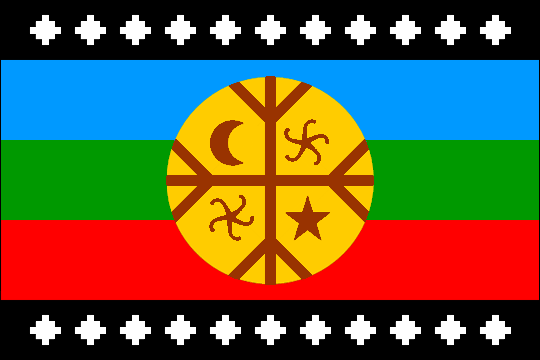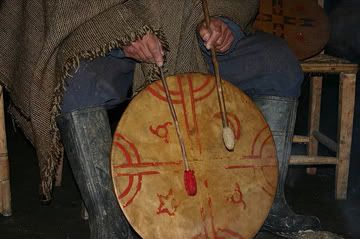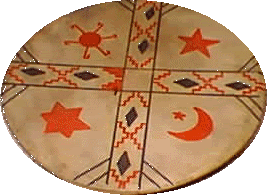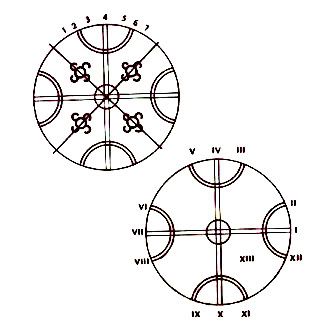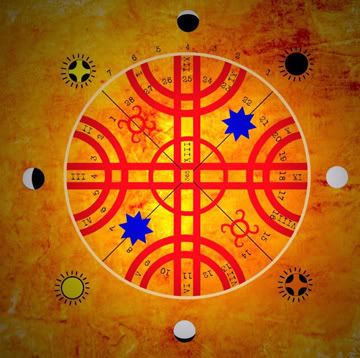Ιδρυτής της μεγάλης πόλης τους, λοιπόν, της Κούσκο, φέρεται ένας τύπος ονόματι Ινκαρί (Inkarri ή Incari), από τον οποίο έλαβαν + το όνομά τους. Από την πρὠτη φορά που διάβασα το όνομα αυτό, η λέξη μου θύμισε τον Ίκαρο.
Η ''έκπληξή'' μου εντάθηκε, όταν είδα ότι παριστάνεται φτερωτός, + μάλιστα με τεχνητά φτερά.


Στην προσπάθειά μου να τεκμηριώσω ότι όντως πρόκειται περί του Ικάρου, έψαξα αναφορές που να έχουν σχέση με Ελλάδα. Βρήκα, λοιπόν, ότι στον ίδιο θρύλο, υπάρχει η ελληνικότατη ονομασία ''Νaupamachus'', ως όνομα ''θεοτήτων'', αρχικὠν αποίκων της Γης, που όμως εναντιώθηκαν στους μεγάλους ''θεους'' Απου.
''ΝAUPAMACHUS'' λοιπόν...
ΝΑΥ(Σ) + ΠΑΝ + ΜΑΧΗ => NΑΥΠΑΝΜΑΧΟΥΣ (Ν + Μ => ΜΜ) => ΝΑΥΠΑΜΜΑΧΟΥΣ => ΝΑΥΠΑΜΑΧΟΥΣ
Ουδέν σχόλιον...
Παραθέτω άκρως ενδιαφέρον κείμενο της ιστορίας αυτής. Για πολλούς λόγους.
http://www.novica.com/itemdetail/index.cfm?pID=59847
''Cuzco plate, 'Incari'
This decorative plate by the Huaman Paucar family represents the mythical figure of Incari, the founder of the great Inca people. Shaped by hand from red clay, the piece lends a distinctive Peruvian touch to any interior, imbued with mystical colors and motifs.
According to folklore, before the existence of the sun and the moon, powerful gods known as Ñaupamachus inhabited the earth, living in complete darkness. One day Roal (the creator spirit and head of the Apu gods) proposed the foundation of a city where they could all live in harmony. None of the Ñaupamachus responded, for which Roal punished them, creating the sun and the moon. The Ñaupamachus could not tolerate the light of the sun, which dried them out, turning them into skin and bones, so they preferred to remain in the darkness.
After this, the Apus, or gods of the hills, created Incari and his wife Collari in order to establish the Inca people. They gave Incari a rod of gold and Collari a distaff. The couple had to choose a suitable location for the Inca to live. Incari was supposed to throw the rod of gold so that it would stick into the ground, pointing skywards, determining the location of the new empire. In his first attempt, Incari aimed poorly and the rod landed wrong. The place was called Qero, close to the ruins of Tambo, but it was not adequate. Incari and Collari were punished for their mistake, as the Apus allowed the Ñaupamachus to leave the darkness and attack the newly-created city, destroying it and forcing the residents to flee to Lake Titicaca. From there, the Inca people, led by Incari and Collari, followed the Vilcanota River until they arrived at a great valley, where once again they threw the rod of gold. This time it landed vertically in the ground, and thus Cuzco, the capital of the Inca Empire, was founded''.
Συσχετίστε επίσης, την κοντινή σχετικά πόλη Ίκα (Ica), καθώς + τα τραγούδια των Σαμάνων του Αμαζονίου, τα οποία λέγονται... icaros.
http://www.ayahuasca-shamanism.co.uk/icaros2.htm
http://www.biopark.org/peru/icaros.html
http://icarosdna.yage.net/page/index.htm
http://singingtotheplants.blogspot.com/ ... songs.html
http://www.biopark.org/peru/icaros.html
http://www.ayahuasca-wasi.com/english/icaros.html









